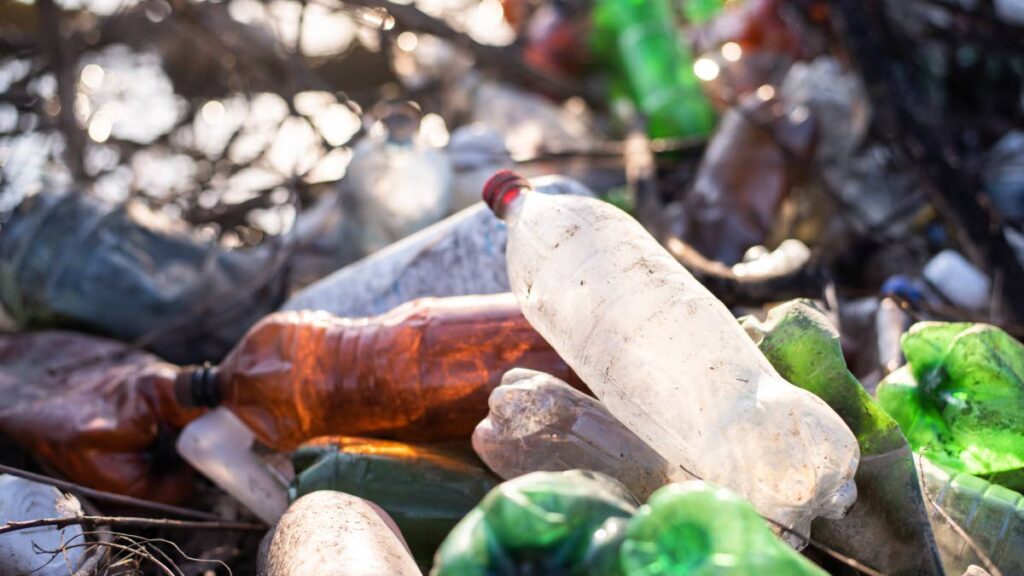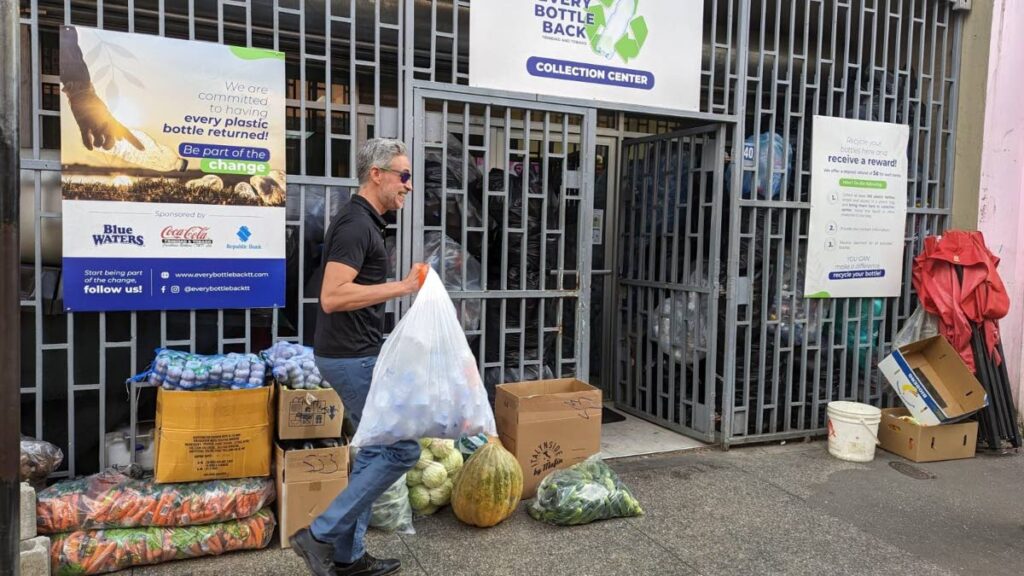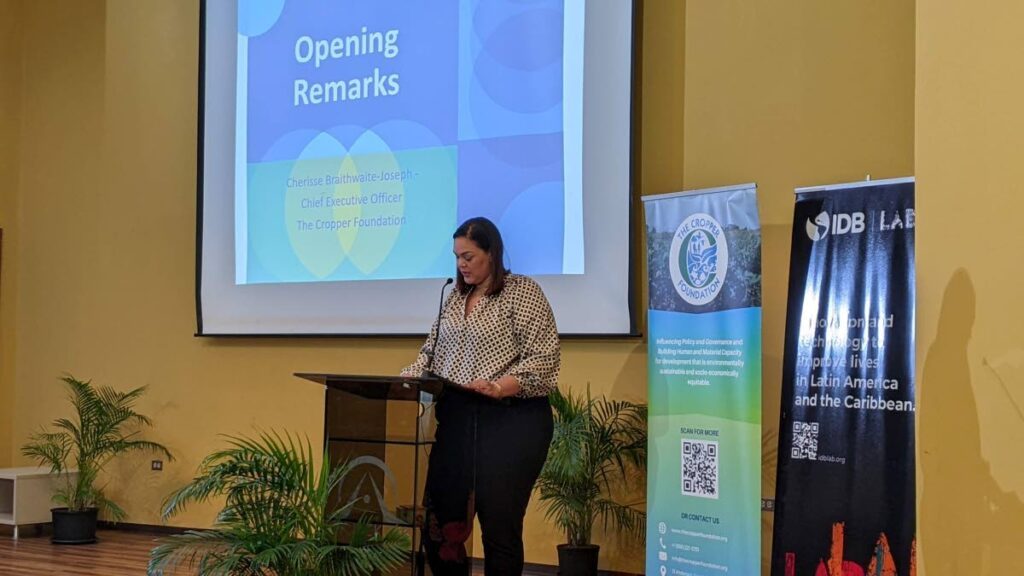Competing beverage companies unite to recycle

Despite being competitors, Blue Waters, Caribbean Bottlers TT and Nestlé TT have partnered for the first time to address recycling. Along with the recycling company Every Bottle Back TT, they partnered under the Catalyzing and Connecting the Circular Economy project.
Launched in 2022 by the Inter-American Development Bank Lab (IDB Lab), in collaboration with the Cropper Foundation, the project sought to promote circular thinking in the private sector.
The circular economy system is based on reusing materials and products to continue production in sustainable and environmentally friendly ways.
The project aimed to execute this by improving TT’s waste management. Its main focus was creating a sustainable, private-sector-driven recycling model that targeted waste from food and beverage containers.
"Companies can't continue to put plastics, tetra, aluminium and glass into the marketplace…and not have solutions for the recycling of these products,” said Vashtie Dookiesingh, private finance operations lead specialist at the IDB, during her remarks at the project's closing symposium on October 29 at the Arthur Lok Jack Global School of Business.
“This project was just a pilot and it was successful, but we have to collectively find ways to take the solution forward.
“There is no reason that we in TT can’t develop a world-class solution to some of the pressing problems that plague our region and our world, especially with the talent we have.”

Gathered at the Yara Auditorium, executives of the four companies had a panel discussion at the symposium.
José Luis Guillermety, project lead of Every Bottle Back TT, spoke about his role as collaboration moderator.
“I kept trying to be a mediator in terms of explaining that being fierce competitors doesn’t mean that we cannot work together.
“It started as a pilot. We didn’t know if it was going to work or if it was going to grow big, but in this project, the word ‘catalysing’ rings true because it forces a conversation…and even though we’re not at the levels that we want to be…this is the start of something.
“Now we’re bringing in a baler that can probably process 20-25 per cent of all the PET (polyethylene terephthalate) in the country.”
Lillian Rodriguez Lopez, director of government affairs at Caribbean Bottlers TT, spoke about the importance of the collaborative project.
“We are fierce competitors but it doesn’t mean we don’t all get along. We recognise that we are a robust industry that needs to work together.
“Some call it climate-change adaptation, I call it climate-change catastrophe, because we have to do something globally to turn the tides of what’s happening.
“We had an unprecedented opportunity, after 20 years of discussion, to work together and do something meaningful as an industry and to play our part in taking producer responsibility.”
Pradeep Subrian, CEO of
Blue Waters Products Ltd, said companies must collaborate in these efforts.
“It is an international best practice for success. With any company you have your internal strategies and your external strategies, and with your external strategies you have to collaborate, no matter with who. You have statutory and international obligations.”
Mathew Jardim, agricultural services and ESG manager of Nestlé TT Ltd, said the company is implementing internal education efforts and circular thinking to achieve its sustainability goals.
“The goal goes towards a totally net-zero (emissions)
company by 2050 through efforts in recycling our post-consumer products.”
Accomplishing this goal would see the company reaching an ideal state of removing just as much pollution and waste from the environment as it produces.
In 2018 then Public Utilities minister Robert Le Hunte said legislation like the Beverage Container Bill aimed to enhance this by putting a monetary value on plastic waste returned by consumers and the responsibility of recycling it on manufacturers and importers.

“It’s not just about saying, ‘Oh, here’s recyclable content, do what you want with it.’ It’s about taking that content back and recycling it so we’ll have generations of this recycled material,”
said Lopez, as the panel discussed the legislative aspect of recycling.
"We're looking at a (plastic waste) deposit system. We're looking at strengthening our role and the many facets of the legislation.
“What I think is important is to recognise that the industry is willing and able and wants to take a leadership role in this. Especially for Coca-Cola: they're looking globally to make these investments in taking back the single-use plastic waste they’re putting into the world.”
While Guillermety, who has worked on recycling initiatives internationally, says TT still has a long way to go, he expressed optimism about the future of waste management.
“I’ve seen what the future looks like, and the efforts that are being put in TT around beverage-container recycling are fantastic. I think it is going to take us to a good place. We have an industry committed to supporting all the people creating this legislation.”
Subrian was also optimistic as he spoke about the potential of newly passed policy.
“We have seen very intense dialogue that started five years ago, and in the last year the (National Integrated Solid Waste/Resource Management) policy was passed in cabinet, which was a major milestone, and I think that’s the critical part that would lead us to execution.”
Jardim emphasised the importance of education.
“I notice that so many people are just unaware. When we have these events and when we engage with people they indicate to us that they are not too sure what can and can’t be recycled.
"Collaboration is key as well,
but I think education is the most important thing, and maybe we can collaborate with the Education Ministry.”
The project’s recycling initiatives also included community engagement. In April, the Cashew Gardens Community Recycling Programme launched the Macaulay/ Hermitage Village Recycling Programme engaging hundreds of young people.
The project educated community members on sustainability and resulted in a bench
being made from 13,000 recycled plastic bottles courtesy of Flying Tree Environmental Management. Added to these efforts the project eventually went beyond recycling.
On only her second day as CEO of the Cropper Foundation, Cherisse Braithwaite-Joseph
spoke about the project’s evolution at the symposium.
“We realised that another campaign strictly around recycling was not needed at this time.
“We felt what the country really needed was positive, uplifting messages around existing options in support of the five Rs: reduce, reuse, repair, repurpose, recycle. Messages that emphasise the good habits we grew up with, the good work of those already addressing the issue of waste and all the many good reasons we must do our part.”
In her speech, Braithwaite-Joseph explained how the project established its revised goals around driving behavioural change, piloting a recycling process and supporting circular economy businesses. Backed by multi-stakeholder engagement, the result was a wide range of sustainability initiatives.
The project’s behavioural change efforts saw the creation and execution of the Daz Good Ting digital campaign that encouraged households to minimise waste. Launched in 2023, in collaboration with the EMA and others, the campaign emphasised the value of waste in overflowing landfills that could instead be repurposed and reused.
The campaign reached over 300,000 people across social media platforms, and participants went beyond digital promotion by presenting their Circular City showcase at this year’s Trade and Investment Convention (TIC).
As the convention’s first co-ordinated sustainability presence, the Circular City was designed to show the wide range of sustainable business options in TT. The pavilion presented over 20 entities, including non-profit organisations, small businesses and state agencies, eventually winning the convention’s award for best booth pavilion. At the project's end, the advertising company Lonsdale Saatchi & Saatchi offered to “adopt” the
project, as it recognised the need for continuous investment and promotion.
Braithwaite-Joseph said, “To the Lonsdale team, consider this a signal that your proposal is under active review.”

Comments
"Competing beverage companies unite to recycle"